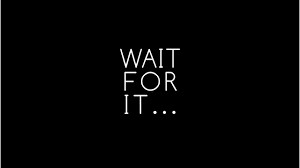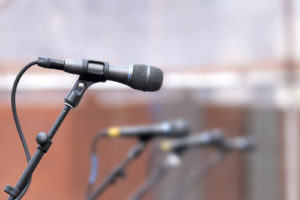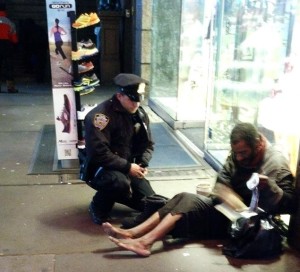I stood in her kitchen, holding a pan of lasagna.
She was a new mother and she had the disoriented look of someone who had just parachuted into enemy territory. I guess you could say that’s exactly what had happened to her, because this was not the homecoming she had planned. For one thing, after spending an extended time in the hospital, her newborn was already a month old. For another, his head was held in place by a metal bolt through his neck.
My friend who was involved in a ministry to parents of babies born with major cranio-facial abnormalities asked if I would bring this new mother dinner, since we lived in the same town. Even more than most new mothers, this woman had very little time or energy to worry about such mundane tasks as making dinner. So there I was, making awkward small talk with this woman I had never met.
After thanking me several times, she finally asked, “Why did you do this for someone you don’t know?”
I blathered on about how happy I was to help, that I knew she needed one less thing to worry about. All that was true, of course, but I could tell it wasn’t a satisfying answer. After all, why would a perfect stranger walk into her house bearing dinner?
I offered something bland and vague, along the lines of “I’m happy to help,” but even I knew that was inadequate.
Here’s what I wished I had said:
“I’m here because God loves you and I am just His caterer.”
“I’m here because God wants you to know that you and your son are perfect and precious to him.”
“I made you lasagna because God has rescued me from pain and confusion and exhaustion and I want you to know that he will do the same for you.”
Most of all, I wished I had said that I didn’t bring dinner because it was the nice thing to do. I didn’t cook for her because, as the Dalai Lama is often quoted as saying, ” My religion is kindness.”
The world can certainly use all the kindness it can get; I’m not discouraging it. God knows (and I mean that literally) that we need to be more tolerant, compassionate and helpful to one another.
But the kindness of bringing dinner fills your belly, but not your soul.
Kindness can offer kinship and fellowship, but it doesn’t offer hope and it doesn’t comfort you when everyone has gone home and you are alone with your pain and fear.
No, my religion isn’t kindness.
My religion is belief in a God who sees beauty where the world sees deformity. My religion worships a God who knows what it means to be human, in all its glory and all its pain, and never leaves us.
My religion is in awe of a God whose Holy Spirit could overcome my fears and allow me to hold this mother’s child, looking past the rod in his neck, and smile at his sweet face. I brought her a meal and she was appreciative. I cooed at her baby boy and she was joyous.
Still, I regret my silence all those years ago. I take comfort in the possibility that maybe someone else was bolder than I and told her all the things I should have.
I’ll be ready next time.
Always be ready to make your defense to anyone who demands from you an accounting for the hope that is in you; yet do it with gentleness and reverence.
1 Peter 3:15-16




 g after a lovely Easter dinner, I faced a kitchen full of dishes, pans, serving platters and glassware to put away. I put on some music and got to work. When I was done, I was delighted that the kitchen had been restored to order. I said with great triumph (to a cat that looked singularly unimpressed), “You’d never guess that anything had happened here.”
g after a lovely Easter dinner, I faced a kitchen full of dishes, pans, serving platters and glassware to put away. I put on some music and got to work. When I was done, I was delighted that the kitchen had been restored to order. I said with great triumph (to a cat that looked singularly unimpressed), “You’d never guess that anything had happened here.”